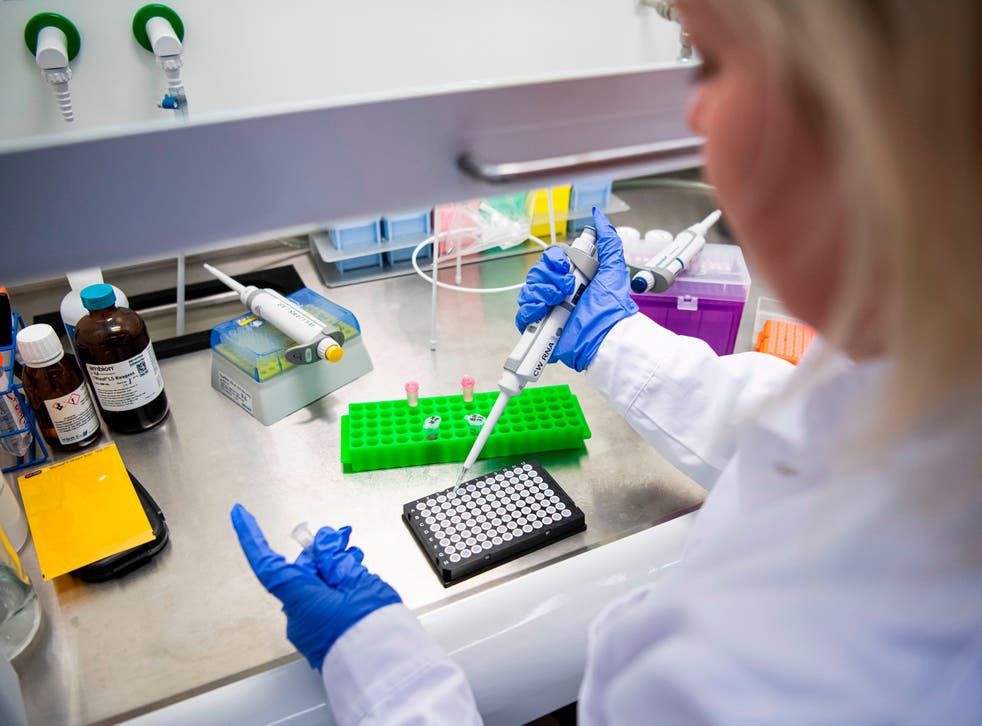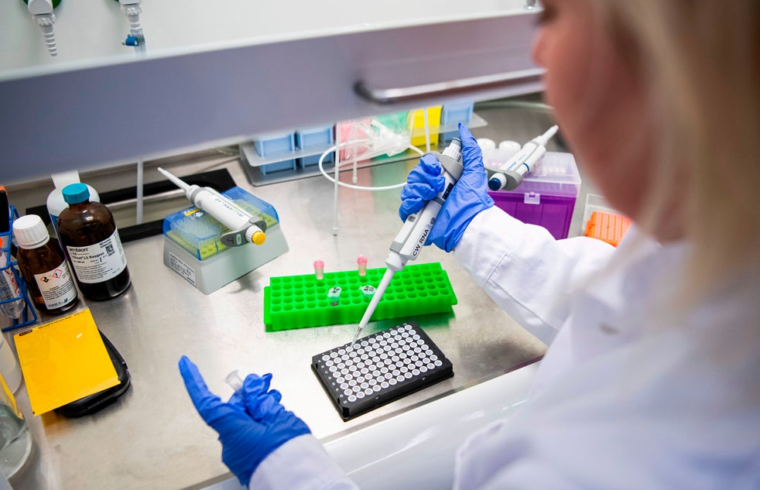UK Covid-19 vaccinations: Latest figures
Covid-19 cases appeared to rise in the UK last week but overall infection levels remained at a low level, according to the latest data from the Office for National Statistics (ONS).
The percentage of people testing positive in England showed “early signs of a potential increase”, the ONS said on Friday. While the coronavirus reproduction number, or R value, rose slightly to between 0.9 to 1.1 – up from between 0.8 and 1 last week, the latest government figures showed.
Concerns remain that the rise in infections is likely fuelled by the spread of the so-called Indian variant.
Meanwhile health officials are also investigating another new variant, which has caused 49 infections, mostly in Yorkshire and the Humber region. Public Health England (PHE) has been monitoring the VUI-21MAY-01, or AV.1, variant since April.
But the agency said there was “currently no evidence that this variant causes more severe disease or renders the vaccines currently deployed any less effective” and asked people in the area and across England to “not be alarmed”.
Read more:
Health officials investigating new Yorkshire Covid variant
Public Health England said it is “closely monitoring” a new Covid variant which has so far caused 49 cases of infection, mostly in Yorkshire and the Humber region.
The VUI-21MAY-01, or AV.1, variant has been under observation since April, PHE announced yesterday. But officials said there was “currently no evidence that this variant causes more severe disease or renders the vaccines currently deployed any less effective”.
Dr Kev Smith, from PHE, said scientists had been watching and sequencing the variant since the “strange combination of mutations” were spotted a few weeks ago.
“So far the people that we have identified are not particularly infectious, they’re not really getting more sick than other cases of coronavirus and we’re not seeing anything particularly worrying about it,” he said, adding: “At the moment, we don’t think it’s more infectious than the other coronaviruses that we are seeing around.”
Greg Fell, director of public health in Sheffield, said his team had been monitoring the new strain “as we do with all outbreaks across the city”, and told people to remain calm.
“Please don’t be alarmed, we want you to continue doing what you have been for the past year. Follow the guidance, continue to wash your hands regularly and wear a mask indoors,” he said.
Sam Hancock22 May 2021 08:12
Sewage testing ramped up to tackle Covid variants
A programme to test sewage to assess the prevalence of different Covid-19 variants in different regions now covers two-thirds of England’s population, the Government has said.
The scheme tests samples of wastewater for traces of the virus, and positive samples are genome sequenced to identify whether it is a variant of concern, such as the India strain.
The Department of Health and Social Care (DHSC) said the programme had helped identify the need for surge testing in areas such as Bristol and Luton. It then continues to monitor sewage after surge testing has ended, to ensure the variant is no longer circulating in the area.
Dr Jenny Harries, chief executive of the UK Health Security Agency, said: “Sequencing wastewater samples provides an additional detection system for variants of concern, enabling us to respond more effectively to outbreaks and better protect citizens.”

A professor tests wastewater for RNA after studies showed remnants of coronavirus could be detected in sewage water
(AFP via Getty Images)
Sam Hancock22 May 2021 08:06
Germany to ban Britons over variant concerns
Anyone living in Britain will soon be barred from travelling to Germany after the country’s Public Health Institute designated the UK as a virus variant area of concern.
From midnight on Sunday, people travelling to Germany from Great Britain and Northern Ireland may only enter the country if they are a German citizen or resident.
Spouses and children under 18 of a German citizen or resident can also enter, as long as they are travelling together.
Those with an urgent humanitarian reason, such as an immediate family bereavement, are also able to enter. However, anyone entering the country from the UK must quarantine for two weeks on arrival, even if they test negative for coronavirus.
The move comes after Spain lifted travel restrictions on British visitors, with the country’s prime minister Pedro Sanchez saying Spain will be “delighted, extremely delighted” to receive British tourists again.
Germany and Spain are both on the UK government’s amber list, meaning travellers must quarantine at home for 10 days and take a pre-departure test and two post-arrival tests.
Sam Hancock22 May 2021 07:51
Covid vaccinations extended to 32 and 33-year-olds
England’s vaccination rollout has been extended to people aged 32 and 33, the NHS has said, while also estimating that more than 50 million coronavirus doses will have been given by Saturday.
This is the equivalent to over 40 per cent of the country’s adult population. Of the 49,682,934 jabs administered so far, 18,328,096 of them have been second doses.
The latest age group to receive jabs – like all under-40s – will not be offered the Oxford-AstraZeneca vaccine because of its link to rare blood clots, writes Rory Sullivan.
Sam Hancock22 May 2021 07:47
‘Early signs of increase’ in UK Covid cases – data
Cases of coronavirus were on the up in the UK last week, according to the latest official data.
The percentage of people testing positive in England showed “early signs of a potential increase”, the Office for National Statistics (ONS) said on Friday.
For the week ending 15 May, the ONS estimated that 49,000 people in the community had Covid-19 in England, equating to around 1 in 1,110 people. That was up from an estimated 40,800 people – or 1 in 1,340 – for the week ending 14 May.
My colleagues Liam James and Matt Mathers have the full report:
Sam Hancock22 May 2021 07:43
Hello, and welcome to The Independent’s rolling coverage of the pandemic.
Sam Hancock22 May 2021 07:38









